#he has an outstanding narrator voice
Text
just finished listening to the og re-animator short story audiobook, and Dan is just the best.
homie was totally ok with theft, graverobbing, so many fucking violations of sepulture, malpractice- this fucking guy has committed SEVERAL FELONIES!!! WAY TOO MANY!! any he freely admits SEVERAL TIMES that he's aware what he's doing isn't the most ethical, but he's ok with it because Dr. West is just so fascinating. their work is important, but it's West that's the draw here. he describes himself as enchanted by his mind, and repeatedly describes his soft delicate features and it's like????? sir???????
it's only when West starts murdering people just to bring them back again that Dan seems to have a problem, but babygirl!!! you giant fucking hypocrite!!! <33333
#it was a fun read#I seriously recommend the version of it read by jeffery combs#he has an outstanding narrator voice#it's a fucking tragedy he hasn't done more audiobooks#minty mumblings#re animator#reanimator
134 notes
·
View notes
Text
Snippets 🐺💜
John Epler quote: "There’s a difference between playersexual and pansexual. All companions are canonically pansexual." [source]
The opening cinematic Varric narrates at the start of the game plays before CC. "Following character creation, Varric's narration continues, revealing that he's put together a group to stop Solas, having recruited our character and a handful of others so far." [source]
Despite the action-heavy focus, positioning is absolutely key, and using careful timing to hit multiple foes at once can be the difference between victory and defeat [source]
"In-between fights, Varric and the other characters, including your fully-voiced protagonist, discuss events that are unfolding and different things that have led up to this moment. Epler notes for the preview that with how much time has passed since prior games, the team wanted to carefully throw in some reminders without it feeling like ham-fisted exposition." [source]
"The Dread Wolf's ambitions have already been laid bare, but I strongly suspect there's more going on, and Epler cryptically hints that not everything will be as it first seems" [source]
Mages can move instead of standing in one place, allowing them to get up close and personal with enemies - a major game-changer for magic users [source]
Faction choice affects in-game moments between other factions and locations, as well as characters [source]
"When they were creating this area, they kept that in mind and looked at other locations to figure out how they could make it more grand. They developed the entire area based on a comment someone said in a past game, and if that isn’t dedication to lore, I don’t know what is" [source] (re: Minrathous)
In this demo the press saw femme Rook! [source]
The standard three square hotkeys look like an updated version of past ones [source]
"It sounded like there is also a system that allows hints during battle, like when something is a certain range, etc., that they said could be turned off" [source]
"In cutscenes, rain dripping down a building, blood on someone’s hands, or stepping into a puddle looks outstanding". "Things like clothes and hair are dynamic and move with you" [source]
"what at its core is a beautifully told story of revenge, regret, and the complexities of good and evil" [source]
During the interrogation scene in the bar with the shady bartender, Varric pins her to her own station with a crossbow bolt in order to interrogate her. Rook and Varric then go scrounge the city for clues [source]
Re: using body sliders in CC - "It looked incredibly easy to maneuver around and create a body that is either close to that player's real personage or their ideal fantasy self" [source]
Companions "will not only be influenced by your decisions in terms of how they treat you outside of combat, but closeness to party members will also change how they fight, with those closest to Rook more useful and lethal in battle" [source]
"Our presenter said that each specialization was pretty much as deep as a job" [source]
The game will not be available in India. [source]
The game has a Quality mode and a Performance mode on PS5 and Xbox Series consoles. it runs the latest version of Frostbite, targeting frame rates of 60fps in Peformance and 30 in Quality [source]
They will have more to share on both graphics modes for consoles in the coming months. [source]
David Gaider quote on the portrayal of Anders' orientation in DAII:
DA2 writer David Gaider told Kotaku in February this was meant to distinguish Anders’ relationship with male or female versions of Hawke, but recognizes this comes off like the mage’s identity was a switch to be flipped in hindsight. “Unfortunately, we just didn’t have enough time to get enough feedback and iterate on those situations,” he said. “We would hit a particular interaction, we would make a judgment call either as a group or the writer on their own, and that was it. There was no time for anything more than one gut-check, which is probably not the way to go.”
edit: forgot to add src for last one sorry. its here
#dragon age: the veilguard#dragon age: dreadwolf#dragon age 4#the dread wolf rises#da4#dragon age#bioware#video games#lgbtq#solas#long post
429 notes
·
View notes
Text
Kickstarting the Red Team Blues audiobook, which Amazon won't sell (read by Wil Wheaton!)
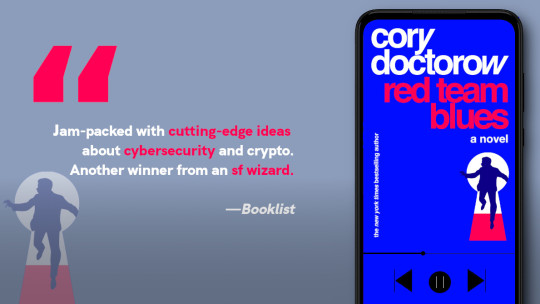
Red Team Blues is my next novel, a post-cyberpunk anti-finance finance thriller; it’s a major title for my publishers Tor Books and Head of Zeus, and it’s swept the trade press with starred reviews all ‘round. Despite all that, Audible will not sell the audiobook. In fact, Audible won’t sell any of my audiobooks. Instead, I have to independently produce them and sell them through Kickstarter:
https://www.kickstarter.com/projects/doctorow/red-team-blues-another-audiobook-that-amazon-wont-sell
If you’d like an essay-formatted version of this post to read or share, here’s a link to it on pluralistic.net, my surveillance-free, ad-free, tracker-free blog:
https://pluralistic.net/2023/03/21/anti-finance-finance-thriller/#marty-hench
Audible is Amazon’s monopoly audiobook platform. It has a death-grip on the audiobook market, commanding more than 90% of genre audiobook sales, and every single one of those audiobooks is sold with Amazon’s DRM on it. That means that you can’t break up with Amazon without throwing away those audiobooks. Under the 1998 Digital Millennium Copyright Act, I can’t give you a tool to convert my own copyrighted audiobooks to a non-Amazon format. Doing so is a felony carrying a five year prison sentence and a $500,000 fine for an act that in no way infringes anyone’s copyright! Indeed, merely infringing copyright is much less illegal than removing Amazon’s mandatory DRM from my own books!
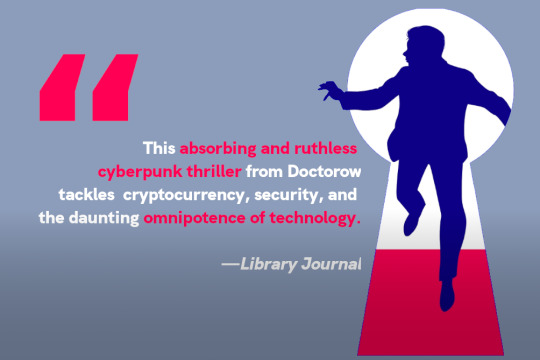
I’ve got amazing publishers who support my crusade against DRM, but they’re not charities. If they can’t sell my audiobooks on the platform that represents 90% of the market, they’re not going to make audio editions at all. Instead, I make my own audiobooks, using brilliant voice actors like Amber Benson and @neil-gaiman, and I sell them everywhere except Audible.
Doing this isn’t cheap: I’m paying for an incredible studio (Skyboat Media), a world-class director (Gabrielle de Cuir), top-notch sound editing and mastering, and, of course, killer narrators. And while indie audiobook platforms like Libro.fm and downpour.com are amazing, the brutal fees extracted by Apple and Google on app sales means that users have to jump through a thousand hoops to shop with indie stores. Most audiobook listeners don’t even know that these stores exist: if a title isn’t available on Audible, they assume no audiobook exists.

That’s where Kickstarter comes in: twice now, I’ve crowdfunded presales of my audiobooks through KS, and these campaigns were astoundingly successful, smashing records and selling thousands of audiobooks. These campaigns didn’t just pay my bills (especially during lockdown, when our household income plunged), but they also showed other authors that it was possible to evade Amazon’s monopoly chokepoint and sell books that aren’t sticky-traps for Audible’s walled garden/prison:
https://www.publishersweekly.com/pw/by-topic/columns-and-blogs/cory-doctorow/article/90282-we-wrote-a-book-about-why-audible-won-t-sell-our-book-and-snuck-it-onto-audible.html
And today, I’m launching the Kickstarter for Red Team Blues, and even by the standards of my previous efforts, I think this one’s gonna be incredible.
https://www.kickstarter.com/projects/doctorow/red-team-blues-another-audiobook-that-amazon-wont-sell
For starters, there’s the narrator: @wilwheaton, whose work on my previous books is outstanding, hands-down my favorite (don’t tell my other narrators! They’re great too!):
https://wilwheaton.net/
Beyond Wil’s narration, there’s the subject matter. The hero of Red Team Blues is a hard-charging forensic accountant who’s untangled every Silicon Valley finance scam since he fell in love with spreadsheets as as a MIT freshman, dropped out, got his CPA ticket, and moved west. Now, at the age of 67, Marty Hench is ready to retire, but a dear old friend — a legendary cryptographer — drags him back for one last job — locating the stolen keys to the backdoor he foolishly hid in a cryptocurrency that’s worth more than a billion dollars.

That’s the starting gun for a “grabby next-Tuesday thriller” that sees Marty in between three-letter agencies and international crime syndicates, all of whom view digital technology as a carrier medium for scams, violence and predation. Marty’s final adventure involves dodgy banks, crooked crypto, and complicit officials in a fallen paradise where computers’ libertory promise has been sucked dry by billionaire vampires.
It’s a pretty contemporary story, in other words.
I wrote this one before SVB, before Sam Bankman0Fried and FTX — just like I wrote Little Brother before Snowden’s revelations. It’s not that I’m prescient — fortune-telling is a fatalist’s delusion — it’s that these phenomena are just the most spectacular, most recent examples in a long string of ghastly and increasingly dire scandals.
Red Team Blues blasted out of my fingertips in six weeks flat, during lockdown, when technology was simultaneously a lifeline, connecting us to one another during our enforced isolation; and a tool of predatory control, as bossware turned our “work from home” into “live at work.”
The last time I wrote a book that quickly, it was Little Brother, and, as with Little Brother, Red Team Blues is a way of working out my own anxieties and hopes for technology on the page, in story.

These books tap into a nerve. I knew I had something special in my hands when, the night after I finished the first draft, I rolled over at 2AM to find my wife sitting up in bed, reading.
“What are you doing?” I asked.
“I had to find out how it ended,” she answered.
The next day, my editor sent me a four-line email:
That.
Was.
A! Fucking! Ride!
Whoa!
Within a week, he’d bought Red Team Blues…and two sequels. I finished writing the second of these on Monday, and all three are coming out in the next 22 months. It’s gonna be a wild ride.

Kickstarter backers can get the usual goodies: DRM-free audiobooks and ebooks, hardcovers (including signed and personalized copies), and three very special, very limited-run goodies.
First, there’s naming rights for characters in the sequels — I’m selling three of these; they’re a form of cheap (or at least, reasonably priced) literary immortality for you or a loved one. The sequels are a lot of fun — they go in reverse chronology, and the next one is The Bezzle, out in Feb 2024, a book about prison-tech scams, crooked LA County Sheriff’s Deputy gangs, and real-estate scumbags turned techbros.
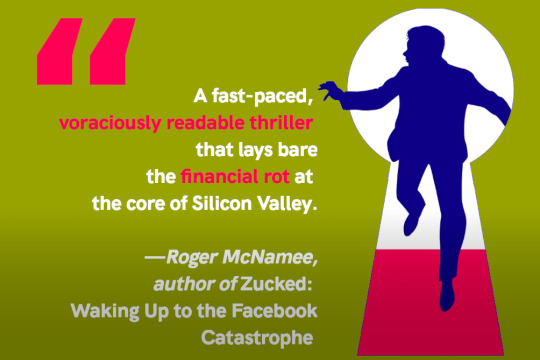
The third book is Picks and Shovels (Jan 2025), and it’s Marty’s first adventure after he comes west to San Francisco and ends up working for the bad guys, an affinity scam PC company called “Three Wise Men” that’s run by a Mormon bishop, a Catholic priest and an orthodox rabbi who fleece their faithful with proprietary, underpowered computers and peripherals, and front for some very bad, very violent money-men.
Next, there’s three Marty Hench short story commissions: the Hench stories are machines for turning opaque finance scams into technothrillers. While finance bros use MEGO (“my eyes glaze over”) as a weapon to bore their marks into submission, I use the same performative complexity as the engines of taut detective stories. Commissioning a Hench story lets you turn your favorite MEGO scam into a science fiction story, which I’ll then shop to fiction websites (every story I’ve written for the past 20 years has sold, though in the event that one of these doesn’t, I’ll put it up under a CC license).
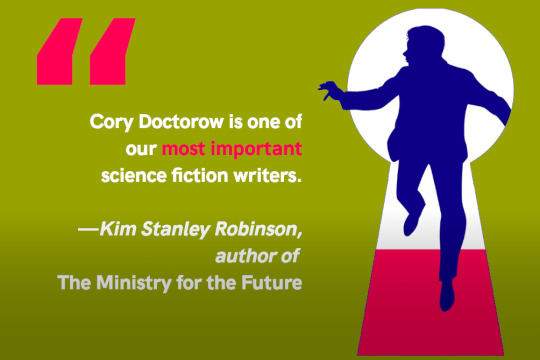
Finally, there’s a super-ultra-limited deluxe hardcover edition — and I do mean limited, just four copies! These leather-bound editions have Will Staehle’s fantastic graphic motif embossed in their covers, and the type design legend John D Berry is laying out the pages so that there’s space for a hidden cavity. Nestled in that cavity is a hand-bound early draft edition of The Bezzle, the sequel to Red Team Blues. The binding is being done by the fantastic book-artist John DeMerritt. Each copy’s endpapers will feature a custom cryptographic puzzle created especially for it by the cryptographer Bruce Schneier.
I often hear from readers who want to thank me for the work I do, from the free podcast I’ve put out since 2006 to the free, CC BY columns I’ve written for Pluralistic for the past three years. There is no better way to thank me than to back this Kickstarter and encourage your friends to do the same:
https://www.kickstarter.com/projects/doctorow/red-team-blues-another-audiobook-that-amazon-wont-sell
Preselling a ton of audiobooks, ebooks, and print books is a huge boost to the book on its launch — incomparable, really. Invaluable.
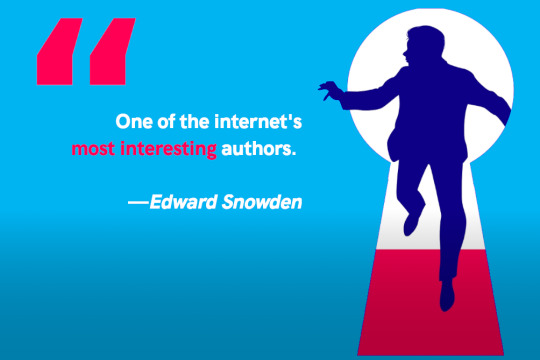
What’s more, helping me find a viable way to produce popular, widely heard audiobooks without submitting to Amazon’s DRM lock-in sets an example for other creators and publishers: we have a hell of a collective action problem to solve, but if we could coordinate a response to Audible demanding the right to decide whether our work should have their DRM, it would force Audible to treat all of us — creators, publishers and listeners — more fairly.
I’ll be heading out on tour to the US, Canada, the UK and Germany once the book is out. I’m really looking forward to as many backers in person as I can! Thank you for your support over these many long years — and for your support on this Kickstarter.

Today (Mar 22), I’m doing a remote talk for the Institute for the Future’s “Changing the Register” series.
[Image ID: A graphic showing a phone playing the Red Team Blues audiobok, along with a quote from Booklist, 'Jam-packed with cutting-edge ideas about cybersecurity and crypto. Another winner from an sf wizard.']
#pluralistic#wil wheaton#drm#chokepoint capitalism#Monopoly#audible#amazon#audiobooks#sf#science fiction#post cyberpunk#cyberpunk#technothrillers#thrillers#heists#cryptocurrency#red team blues#marty hench#kickstarter
1K notes
·
View notes
Text
Some highlights from the MP100 Brazilian dub (because I adore it) pt.1
Earlier in this year, I commented on the voice actor choices for some characters, and someone suggested me to talk more about this dub. Of course, I'm very glad to elaborate on my love for my country's dubbing, specially for one of the most enjoyable examples I've seen.
My congratulations for the director Úrsula Bezerra and the Unidub studio for their efforts here!! I could not expect less from such experient professionals! I also want to give my appreciation to the translation team for their lovely spin on the dialogue that made the anime even funnier.
And about the voice actor choices...
Main Characters
Ítalo Luiz as Shigeo "Mob" Kageyama - This man has an impressive voice range and made a spetacular job with Mob. I love how he captured his young, timid essence but also expressed Mob's stronger emotions in a fantastic way. It made him endearing from the start.
Vágner Fagundes as Arataka Reigen - VÁGNER FAGUNDES. I didn't know much about him before, but his interpretation of Reigen sold him as a excellent voice actor to me. There is something different about his work. No other Reigen voice has that much charisma or impact to me. I can watch the same heartwrenching scenes in the original audio or any of the English dubs without an issue, but listening to Vágner Fagundes's version will make me break in tears instantly. 11/10.
César Marchetti as Dimple + the narrator - I've always enjoyed his voices in older, charismatic character of dubious morality, so he fit like a glove with Dimple's evil spirit ways. César made Dimple's personality SHINE through his hilarious entonations and word choices, and all this served to emphasize the comic effect the green fart had in his best scenes. I also liked César more serious voice when speaking as the narrator, which further proves his range.
Robson Kumode as Ritsu Kageyama - Famous for dubbing Sasuke Uchiha during the 2000s, Robson Kumode has a way for voicing emotionally complex teenagers and so created an amazing portrayal of Ritsu. He managed to transmit both Ritsu's harsher and darker feelings and the fact that in the end, he was still a child. By character design alone, this voice actor would be an obvious choice.
Felipe Zilse as Teruki Hanazawa - In contrast to Ritsu's case, Felipe Zilse was not a clear voice choice for Teruki, considering how deep it can sound at times. I have to admit I found it a bit difficult to get used to at the start (why does this 14 year old sound so adult!). However, Felipe managed to be a great Teruki through the prideful calmness on his voice and his effort on making the character's emotional scenes filled to the brim with a unique quality.
Armando Tiraboschi as Katsuya Serizawa - Oh, how do I even start? I like Armando Tiraboschi's voice very much, even more his talent for dubbing rugged gentlemen in action-ridden contexts. His version of Serizawa may sound older and a little less awkward than the original, but his spin on the character is wonderful with its focus on Serizawa's gentle giant traits. I guess it contributed to my tiny crush on the 30yo ex-terrorist.
Fernanda Bullara as Tome Kurata - EXCELLENT. IMPECCABLE. Fernanda Bullara was the best possible choice for Tome, as she has lots of experience with energetic and exccentric characters such as her. Her voice was outstanding for Tome's outbursts and more exaggerated scenes, while maintaining some vulnerability when necessary. Not too girly, not stereotipical teen-like. She is just a young lady who is passionate about her interests.
Edit: including some links
27 notes
·
View notes
Text
For anyone who's keen on the Peter Jackson LORD OF THE RINGS movies and has had difficulty getting into the book, I really highly recommend Phil Dragash's Soundscape LOTR project, an unofficial, unabridged audiobook with music and sound effects from the film soundtracks. (Because it's unauthorized, you can't buy it, but it's around if you look on the interwebs.)
Dragash is a very good voice actor — so good that the retention of "he said" type dialogue markers is sometimes jarring — and captures the characters very well (although he mostly recites rather than sings the songs). Every so often he stumbles on the pronunciation of a word (curiously, more often real ones than Tolkien's constructed ones — for instance, in Bilbo's song of Earendil, "mariner" becomes "mareener"), but that's also true of the authorized audiobook readers. The Dragash version is clearly superior to both the 1990 audiobook by Robert Inglis (Inglis sings, but his performance of the characters is often stuffy) and the recent 2021 Andy Serkis version (Serkis is a wonderful actor, but some of the characters are beyond his range, and he sometimes seems daunted by Tolkien's poetic constructions). The main downside is that because the Soundscape project is a labor of love done without benefit of professional audio mixing tools, the music can occasionally drown out the narration; Dragash has redone several of the chapters over the years to address this.
Dragash's audio version is a good bridge for people coming from the films, since it's informed by them (in the performance of the characters as well as in the music), but as an unabridged adaptation, it restores excised subplots and flattened characterization, while capturing the sweep of Tolkien's language.
I now prefer it to the two modern audio dramatizations of LOTR: The 1979 Mind's Eye version, adapted by James Arrington (who also plays Gandalf), is essentially an abridged audiobook with multiple voice actors; Arrington is excellent as Gandalf, but the rest of the cast, drawn from local community theater, is not, making it a very mixed bag. The 1981/1982 BBC radio version, adapted by Brian Sibbery and Michael Bakewell (initially as 26 half-hour episodes, later reedited to 13 hour-long installments), is generally very good, with Ian Holm and Bill Nighy outstanding as Frodo and Sam and Michael Hordern a fine Gandalf (although I think Arrington better captured Gandalf's prickliness). However, not all the actors are of the same caliber (Jack May as Théoden isn't a patch on Bernard Hill); the clever idea of presenting the Battle of the Pelénnor Fields as a medieval ballad (by Oz Clarke and the Ambrosian Singers) ends up being hard to decipher; the transformation of narrative exposition to dialogue works in some spots and not others; and the inevitable abridgements are painful if you're familiar with the full text. I certainly wouldn't discourage anyone from the BBC version, and at 12½ hours, it's not much longer than the extended versions of the films, but it's no longer the gold standard for Tolkien audio.
#lord of the rings#lotr#jrr tolkien#audiobook#radio drama#bbc lotr#phil dragash#brian sibbery#michael bakewell#james arrington#ian holm#bill nighy#andy serkis
75 notes
·
View notes
Note
(deep breath in)
Thank you so much for this episode. Really outstanding. Also you are going to get me fired because I did this instead of working. :)
So, the dive into the question of Jim’s corporal punishment and how it is framed has really gotten to me. Apologies for the rant.
I think ML acknowledging the corporal punishment in the way he does is actually quite revealing—a little bit about him, but this is also a generational thing.
He knows it’s a topic other writers have brought up and he (however reluctantly) accepts that it has played enough of a part in the Beatles book world that he must at least touch on it. But he chooses to do so in as glancing a way as possible and with a nod to Mike’s comic narrative voice. Yes, there was physical punishment in this house, but it’s the 1940s/50s and that’s the way it was and we (including the kids involved) can all look back on it with rueful humor.
And look, I get it. Mike’s comic candor in the 1960s places his and Paul’s experiences squarely in a long tradition of what I think of as “bragging rights” stories of childhood crime and punishment. My experience of my own older relatives aligns with how Mike narrates what to us are pretty awful events. The stories people in my parents’ and grandparents’ generation would tell—and tell laughing—about what outrageous things they did as kids to get themselves into trouble and how awful the punishments could be, were many and varied. The more ridiculous the hijinks, the worse the punishment, the better the bragging rights.
I’m guessing like most people of their class and generation, Paul and Mike grew up with a kind of affectionate “it sucks when the grownups start hitting, but meh, that’s life, amirite?” attitude they would have picked up from members of their own family and from their peers. 95% of all stories dealing with corporal punishment written or told before 1960 reflect that attitude. Mike narrates their childhood stories in exactly that vein. Paul does too in a limited way: but only about his teachers (who are outside the family circle of loyalty that you rightly point out).
All of which is to say—and you make this point in the episode but I want to emphasize it here as well—that it is doubtful that any concept of abuse or of equating anything that went on in their home with abusive behavior ever entered their heads at the time—which to me is why Mike can talk about it in the way he does and why Paul doesn’t mind him telling those stories. I think it’s less (at least in the 60s/70s) about either Paul or Mike trying to slip information to the rest of the world than it is a genuine belief that these are amusing and typical stories.
The quote you offer about Ringo from 2015 being surprised to discover that his childhood was not as rosy as he remembered it is hugely instructive. Even after experiencing a lifetime of better conditions, it still took an outside perspective to make him reconsider how he’d framed events and circumstances. To apply this to the McCartney family, Jim’s reliance on corporal punishment was standard, so already the kids are going to frame his behavior as normal. If his actions were in any way different or more extreme than other parents, how could they judge that? This was the water everyone was swimming in at the time.
To be clear: I’m not saying that there is an “acceptable” level of corporal punishment and if we can say that Jim stuck to that level, then everything’s cool by 1950s standards and we should leave it there. But I think that’s exactly what Tune In IS saying. I think ML uses Mike’s comic tone as evidence for how not-a-big-deal this aspect of their childhood was which gives him permission to sidestep it. And if earlier Beatles writers spent time detailing Jim’s actions, then they, like Mike, are utilizing the stories for a touch of period charm, not to take a deeper or more nuanced look at Paul’s childhood. And he’s right. It isn’t like previous authors framed this as a Topic, just colorful background.
So, ML chooses to nod to the fact that previous writers have dealt with this, but since we in the 21st century don’t find stories about children being beaten nearly as “cute” as earlier generations did, he eschews going into detail, perhaps thinking that by not including these details he’s being tactful (like it is retroactively embarrassing to Mike and Paul that we know these things), or at least reflecting a more modern sensibility.
But as you point out, this is where we run into trouble. We DO know these things. Can’t un-know them. And we have the advantage of years of research on the adverse effects of corporal punishment that tell us there is no “acceptable” level of violence against children. And yes, while both Mike and Paul make light of this topic in the 60s and 70s in their different ways, we also have the fact that Paul brought it up in a more complex way in discussing his “showdown” with his dad. Whatever they felt at the time, isn’t it worth exploring how either the people in this history or how society at large view this topic NOW? Isn’t the advantage of writing a book about past events that you can explore these experiences in a larger context?
Late WWII / Boomers are a tricky generation on the question of corporal punishment. A lot of them grew up in homes where this was common, silently certain they would not use physical violence as parents themselves but also absolutely not thinking of what they experienced as potentially damaging. And they would be offended on their parents’ behalf if you framed it that way. If I were to guess, I suspect that’s where Paul and Mike live—and perhaps a lot of readers in that generation? I may be being presumptuous here—in that weird headspace where you get to the point where you have enough perspective to know a loved one’s actions were Wrong but to hang a weighty label like “abusive” on that person or on their actions feels equally, perhaps profoundly, Wrong. If nothing else, it exposes that person to a characterization you maybe don’t want them to have. And for outsiders to do so is just going to shut down the conversation.
I think ML is absolutely right in his overall takeway that in the end Paul’s view of his family settles into one of a safe and stable place. It is where he feels loved and known as “Paul MacCartney” instead of “him.” I think overall, the support system they provided (and still do) gave him more emotional resources to draw on than John had when they faced similar tragedies. And Jim is not a villain in this story. One of my favorite early Beatles stories is Jim bringing Paul lunch sometimes at the Cavern Club—it's such a sweet dad thing to do. Jim is good people. Most of the time.
But the idea that it was always that simple, or that getting to that place of security wasn’t a journey with failures and pitfalls and significant effort, is demonstrably a failure to engage with the facts as we know them. And it denies Paul (and Jim for that matter) the “reality” of growth and struggle and change.
(deep breath out)
Thanks for this, Anon!
We've already said plenty in the ep, so we've nothing to add to your great commentary here.
Thanks for listening! ❤️
22 notes
·
View notes
Text
The Cast of The Road to El Dorado
From here
KEVIN KLINE (Tulio) has been honored for his work on the stage and the screen. He won an Academy Award for Best Supporting Actor for his role in the comedy "A Fish Called Wanda." More recently, he was recognized with the IFP’s Gotham Award for "The Ice Storm," and a Golden Globe nomination for "In & Out." He had previously received Golden Globe nominations for his performances in "Dave," "Soapdish" and "Sophie’s Choice."
Kline is a two-time Tony Award winner for his work on Broadway in "The Pirates of Penzance" and Hal Prince’s production of "On the Twentieth Century." He also garnered Drama Desk Awards for both productions.
A graduate of the Juilliard School of Drama, Kline is a founding member of John Houseman’s The Acting Company, with which he made his Broadway debut in Chekov’s "The Three Sisters." His additional theatre credits include "Arms and the Man" and "Loose Ends," both at Circle in the Square; the title role in Chekov’s "Ivanov" at the Lincoln Center Theatre; the title role in the 1986 and 1990 productions of "Hamlet" at New York’s Public Theatre, the latter of which he also directed, both for the stage and again for PBS’ Great Performances series; and the New York Shakespeare Festival presentations of "Richard III," "Henry V," "Much Ado About Nothing" and "Measure For Measure."
Kline made an auspicious feature film debut in Alan Pakula’s "Sophie’s Choice," opposite Meryl Streep. He then joined the ensemble cast of "The Big Chill," which began his long association with writer/director Lawrence Kasdan. They have since collaborated on "Silverado," "I Love You to Death," "Grand Canyon" and "French Kiss." Kline’s other film credits include "A Midsummer Night’s Dream," "Wild Wild West," "Fierce Creatures," the voice of Captain Phoebus in the animated musical "The Hunchback of Notre Dame," "Looking for Richard," "Princess Caraboo," "Chaplin," "Cry Freedom" and the screen version of "The Pirates of Penzance."
KENNETH BRANAGH (Miguel) is an award-winning actor, director, writer and producer. He adapted, directed and starred in 1989’s "Henry V," which brought him dual Academy Award nominations for Best Actor and Best Director and for which he won BAFTA and National Board of Review Awards for Best Director. He was more recently Oscar-nominated for Best Adapted Screenplay for the 1996 release "Hamlet," which he also starred in and directed. Branagh also received a SAG Award nomination for Best Supporting Actor for his role in "Othello," and produced, adapted, directed and starred in "Much Ado About Nothing," which earned an Independent Spirit Award nomination for Best Feature. His upcoming film credits include a musical version of Shakespeare’s "Love’s Labour’s Lost," which he adapted, directed and stars in.
In addition, Branagh directed and starred in "Mary Shelley’s Frankenstein," which he also produced, "Peter’s Friends" and "Dead Again." His other credits as an actor include "Alien Love Triangle," "Wild Wild West," Robert Altman’s "The Gingerbread Man," Woody Allen’s "Celebrity," "The Theory of Flight," "Swing Kids," "A Month in the Country" and "High Season." He also narrated the Oscar-winning documentary "Anne Frank Remembered," and, in 1993, received an Oscar nomination for Best Live Action Short for "Swan Song." That same year, he was honored with the British Academy’s Michael Balcon Award for Outstanding Contribution to Cinema.
Born in Belfast, Northern Ireland, Branagh studied at England’s Royal Academy of Dramatic Arts, and made his professional stage debut in "Another Country." Joining the Royal Shakespeare Company, he was seen in such plays as "Love’s Labour’s Lost," "Hamlet" and "Henry V" before leaving to form his own successful theatre company. His other stage work includes sold-out productions of "Hamlet," "King Lear" and "A Midsummer Night’s Dream."
ROSIE PEREZ (Chel) received an Academy Award nomination and a Golden Globe nomination for her work opposite Jeff Bridges in Peter Weir’s "Fearless." She was discovered by Spike Lee, who cast her in "Do The Right Thing," and she subsequently starred in such films as Ron Shelton’s "White Men Can’t Jump," Jim Jarmusch’s "Night on Earth," Tony Bill’s "Untamed Heart," Andrew Bergman’s "It Could Happen to You," Alexandre Rockwell’s "Somebody to Love," Seth Zvi Rosenfeld’s "A Brother’s Kiss" and Nancy Savoca’s "The 24 Hour Woman," which she also co-produced. She will next be seen starring opposite John Leguizamo in Seth Zvi Rosenfeld’s "King of the Jungle."
Perez began her career as a choreographer for such artists as Bobby Brown, LL Cool J and Diana Ross. She went on to choreograph and direct the Fly Girls on Fox TV’s "In Living Color."
She made her first foray into producing with "Rosie Perez Presents Society’s Ride," which ran as three parts on HBO. She conceived and executive produced "Subway Stories," an anthology of short films by prominent and new directors, which also aired on HBO. Most recently, Perez entered into a unique deal with Artists Television Group (ATG) to develop, star in and executive produce a television comedy series.
ARMAND ASSANTE (Tzekel-Kan) has most recently been recognized for his work in a number of acclaimed network and cable projects. He won an Emmy Award and garnered Golden Globe and SAG Award nominations for his portrayal of John Gotti in the HBO movie "Gotti." He also earned a Golden Globe nomination for his performance as Odysseus in the miniseries "The Odyssey," and both Emmy and Golden Globe nominations for his work in the miniseries "Jack the Ripper." Most recently, Assante starred as the Confederate commander of the first submarine in TNT’s true-life Civil War drama "The Hunley."
On the big screen, Assante received a Golden Globe nomination for his work in Sidney Lumet’s "Q&A," and won a Special Jury Prize at the USA Film Festival for his performance in the title role of "Belizaire, The Cajun." Among his additional film credits are "Striptease," "Judge Dredd," "Trial by Jury," "The Mambo Kings," "Hoffa," "1492: Conquest for Paradise," "The Marrying Man," "I, the Jury," "Little Darlings," "Private Benjamin" and "Paradise Alley."
A native New Yorker, Assante graduated from the American Academy of Dramatic Arts. He made his professional acting debut on the stage in "Why I Went Crazy," under the direction of Joshua Logan. His subsequent stage credits include the Broadway productions of "Boccaccio," "Comedians," "Romeo and Juliet" and "Kingdoms."
EDWARD JAMES OLMOS (The Chief) has received honors for his work in films and on television. He garnered both Academy Award and Golden Globe nominations and won an Independent Spirit Award for his portrayal of inspirational teacher Jaime Escalante in "Stand and Deliver." He more recently earned acclaim for his role in Gregory Nava’s biopic "Selena," in which he starred as the Tejano singer’s father. He had previously worked with Nava in the film "My Family/Mi Familia."
On the small screen, Olmos won a Golden Globe Award and earned an Emmy nomination for his performance in the HBO drama "A Burning Season." He had earlier collected his first Golden Globe for his starring role in the series "Miami Vice." This season, Olmos appears in the recurring role of Judge Mendoza on the new series hit "The West Wing." He has also starred in such longform projects as "Bonanno: A Godfather’s Story," "The Taking of Pelham One, Two, Three," "12 Angry Men," "Hollywood Confidential," "Dead Man’s Walk" and "Menendez: A Killing in Beverly Hills."
Born and raised in Los Angeles, Olmos first gained attention for his performance in the Broadway musical "Zoot Suit," for which he received a Tony Award nomination. He later recreated his role in the film adaptation. His film credits also include "Wolfen," "Blade Runner," and five films for director Robert M. Young: "The Ballad of Gregorio Cortez," "Saving Grace," "Triumph of the Spirit," "Talent for the Game" and "Caught."
In 1992, Olmos made his feature film directorial debut with "American Me," in which he also starred. He also executive produced the award-winning documentary "Lives in Hazard," which addressed gang prevention.
#dreamworks#the road to el dorado#wayback machine#voice actors#voice cast#kevin kline#kenneth branagh#rosie perez#armand assante#edward james olmos
3 notes
·
View notes
Text

Sarah MacLean, Knockout 6 out of 5 💥
Firstly, I should mention how wonderful this cover is. It is just marvellous … I wasn’t even able to do a proper fancasting. Just the woman on the cover is such a great illustration of Imogen that non of my own options beat it. So I decided to just skip fancasting someone famous as I usually do. Or maybe it was that I just waited for this book so much that I could only imagen the “cover girl” as Imogen. What of Tommy? In my head, he was a fairly beardier and bigger version of Andrew Garfield. No offence, Andrew, you are amazing!

Secondly. To the characters. I was so in love with both of the main characters from previous books, and was able to fall in love even more. They both are extremely beautiful souls. And a reformed policemen (against which occupation I have very strong feelings (coming from a shitty corrupt country with the worst forces possible). To say that Imogen is chaotic in the best possible way wouldn’t be enough because she is also so many more things like brilliant, caring, witty, loyal, curious, and overall self sufficient. She didn’t need someone to make her compute, she just was. This is what I like about this stories so much. These matched are partners most of all.
Tommy and Imogen connection, attraction and relationship development is also outstanding. From the beginning of book, we kind of knew about their traits. But their backstories were also a good touch in understanding who their are and how they came to be like that. The wit! The verbal sparing between Im and Tommy made me genuinely smile/laugh read.
And of course the story itself deserves an honourable mention. Sarah MacLean is the queen of building intriguing story. It is always just another separate main character in her books. I would be bald and compare my 2 favourite authors here. I absolutely love how Lisa Kleypas pays attention to politics, social dilemmas of that time and builds worlds in a highly educationed fashion. But what Sarah Maclean does … she builds stories very effortlessly, where she includes important topics and gives voices to women in a very natural way. There may be less direct narration on human, women, workers rights, but they are part of her stories and it becomes obvious what opinions she has and applies to her characters.
Okay, to the Duchess. I soooo want to say “I knew it”. But not to spoil anything I won’t tell what I knew. I’m so hooked and ready for her story. Just another long year/two years of waiting if we are lucky. But good things take time, so I am not mad, but very grateful to my favourite authors for keeping the genre alive, vivid, loud and beautiful 🤍🤍🤍
#TommyGoBoom
#historical romance#love story#period romance#bridgerton#fancast#victorian#moodboard#romance#booklover#regency#sarah maclean#knockout
12 notes
·
View notes
Text
Korosuu Translation - Chapter Five
More parts here
Shopping District Time
At any rate, why the shopping district? It wasn’t a bad place to target Korosensei. Korosensei’s five senses were all terrifyingly sharp, but his sense of sight and smell were especially outstanding. Inside, his sense of sight was largely obscured thanks to the crowds of people, and with regards to his sense of smell, he would likely be dazzled by the scent of food that flooded the shopping district in the evening.
There were many obstacles in the narrow shopping arcade, so it was the ideal environment to make use of ricochets.
When they rushed out of breath into the shopping district, they saw an unusually large crowd. Many vans with food stalls were parked in the already narrow pedestrian zone, and the scent of crepes and coffee filled the air.
“Hey, what’s that strong smell?” Hayami muttered like a groan whilst pinching her nose. An intense stench was wafting from somewhere.
“Pork belly ramen. It’s said the authentic ones are simmered, so it can be tough if you don’t get used to it.” Chiba answered with a frown. “I guess there’s a stall somewhere. It’s the first time I’ve smelled something like this in the shopping street.”

Chiba surveyed their surroundings. And, at the same time, he heard a familiar voice.
“Oh, how exciting!”
Hearing that slimy mucus-filed voice, the two reflexively hid themselves in a nearby alleyway.
Just a few metres away, Korosensei was standing in disguise. The product exhibition was booming, and a small line near the entrance was being formed. Korosensei was lined up at the very back.
“Certainly, I never thought I’d be able to enjoy these manju buns right here in Kunugigaoka. They’re good no matter how many I eat!” There was a two metre radius left around the suspicious person who stood two heads taller than the other customers and didn’t even attempt to hide the grin on his face as he narrated to himself. “…I’m grateful for the pork belly ramen. They definitely would have found me without that stench.”
The two students quickly left their hiding place and started to walk down the street pretending to be shopping.
So that they could assassinate Korosensei anywhere, the students of 3E had secretly researched the areas surrounding the school. The shops are naturally also one of them, and so checks of buildings that have been vacant for a long time and general floor plans had been converted digitally with the help of Ritsu.
Chiba and Hayami pulled up the blueprints on his smartphone and compared it with their surroundings. They’d kept the data up to date, but it wasn’t perfect. Since the events within the shopping district change day by day, in such cases, they were unable to do an advance check.
“Hey, where’s that sniper? He’s already lurking somewhere.”
“Probably. Karasuma Sensei said that, so I’m sure the preparations are already complete. But, maybe it’s still okay.”
Hayami tilted her head at Chiba’s words. “How come?”
“If you’re aiming at Korosensei, the best time is right now he’s standing in line, right? Yet, nothing has happened yet.”
“I see.”
“Is this a place even the legendary sniper can’t aim at, or maybe there’s some other reason…? Either way, we still need time to prepare. Let’s hurry.”
Right then, Chiba noticed the wall of the old wooden building slightly ahead of them had a dreamy sheen.
“What’s this?”
When he tried touching it, the surface was hard and flat. It seemed like an acrylic board, but rather than affixing something like that, it stuck firmly to the wall more like it was smeared with some sort of liquid substance that solidified. They found these walls all around the building. This kind of measure had been routinely applied to the uneven walls and areas that seemed weak.
“Come to think of it, there are less billboards, right?” Hayami murmured whilst comparing the phone with their surroundings.
Many of the billboards and small decorations attached to the walls and streetlamps were missing from the area. There were not even screw holes left from where the billboard was originally attached, and it looked like the surface had been smoothed and repainted.
“It looks like they’re trying to make the wall as flat as possible. They’re certainly here, close by.”
That evidence was concentrated in the centre of the arcade street. In other words, the legendary sniper had chosen the place for his assassination.
“If that’s the case, it’s definitely difficult to aim for Korosensei in his current position. The Korosensei BB bullets are light, so they won’t reach very far.”
The line for the exhibition was more than 30 metres away from the ricochet location. It would be sufficient if shooting normally, but it was better to think of the distance as being more than double that if you wanted a ricochet shot to reach it.

[illustration] Kunugigaoka shopping street in the evening. Even though it’s a weekday, there are many people and many stalls are open.
“But with such meticulous preparation, why would they choose a place where Korosensei’s so far away?”
Chiba replied after thinking for a moment. “They didn’t expect the monster who exploded the moon into a cresent to be waiting in line at an exhibition?” After he said it, Chiba’s mind turned back to what Karasuma had said during the lunch break. “Is it highly unlikely that someone who doesn’t know Korosensei well enough would be able to assassinate him?”
Hayami nodded. “Right.”
Not long after, the two of them took up their positions on the second floor of the ruined dining hall. The building was facing across from where the legendary sniper had chosen for their assassination. Korosensei couldn’t be shot from there as he lined up for the exhibition. They could see him, but it was too far away.
Despite that, the two of them chose that place because there was no building that could be used for sniping within range of Korosensei, and they based it on their judgment that the place set up for ricocheting was more reliable. It still wasn’t an easy task to fire bullets as they desired downtown. Unlike in the classroom, there were an overwhelming amount of walls that would cause the bullet to bounce against their calculations in the wind. The legendary sniper who had many successes in these conditions was certainly not a normal person.
As soon as Chiba entered the room facing the street, he spread his graph paper out on the table and made a sketch using his drafting tools. It was supposed to be a very precise drawing, but Chiba finished it in a few minutes, including the mirrored copy.

[Illustration] The store across from the abandoned dining hall where Chiba and Hayami are. There are several walls with different depths like this in the store. In reality, it’s necessary to use an elevated floorplan which actually fits the depths of the walls.

[Ground view] A view of the building from above. Multiple lines indicate the depth of each wall. Although it is actually more detailed, irregularities such as window frames are ignored.

[Elevated view] A view of the building from the side. Similar to the floor plan, multiple lines are drawn according to the depth of the wall.
In the meantime, Hayami got the air rifle she’d brought into position, and installed the rangefinder to measure the position of the target.


[Illustration] Using the floor plan of the building and actually aiming. In this way, the position of the limit of the reflection changes depending on which wall is used, so it is necessary to draw multiple target positions.
“What about Korosensei?”
Hayami, who was peering into the rangefinder, looked back at Chiba who had finished drawing. “Right now, he’s coming out of the exhibition. But it doesn’t look like he’s coming straight this way.”
When Chiba took the place of Hayami and looked into the scope, Korosensei was staggering down the street, and he couldn’t determine his direction.
“Nyuyaa… I want to eat that, and that too, but there’s not enough in my wallet… I have to choose carefully… No, but I can’t leave it out…”
Apparently the smells coming from the food stalls lining the street had drawn him in, and he’d lost control of his direction.
“The legendary sniper must be pretty irritated,” Chiba muttered with a wry smile.
Bang.
Sensing a strong impact nearby, Chiba jumped up.
“What?” Hayami, who was away from the window, called out.
“There was a shot… I think.”
At Chiba’s words, Hayami handed over a small mirror meant for makeup. Chiba took it and looked out of the window whilst hiding his body. He could see a thin layer of smoke around the window frame. It was probably a live bullet that was shot.
At the same time, Chiba’s phone started to vibrate. The display showed ‘withheld number incoming’.
When he answered, a monotonous voice reverberated. “I told the person in charge that I should not be disturbed. Didn’t he tell you?”
Chiba pulled the phone away from his ear and turned the speaker on.
Hayami signalled a nod.
“I had no intention of interfering with you at all, so it’s no problem for you to shoot first. However, it’s normal for us in class 3E to aim whenever there’s a chance.”
“Okay.” There was a clear hint of frustration in his voice when he answered. “Get out of there and go straight home. You students are just a hinderance. Harming children isn’t a hobby, but excuse the warning if you stay here."
The call hung up.
18 notes
·
View notes
Photo

The documentary film-maker, journalist and author Gavin Weightman, who has died aged 77 after a long-term illness, was one of a number of talented young programme-makers who were recruited in the late 1970s and early 80s to work in the current affairs and features departments of London Weekend Television. As producer and director, Weightman’s outstanding contribution was The Making of Modern London (1983-85), a long-running series that documented the social history of the capital from 1815 to the then present day. What made it stand out was its extensive use of living memory to drive the narrative. Since then, testimony or oral history has become a common feature in documentary TV film-making.
The first series, Heart of the Empire, covered the London of Dickens, Queen Victoria and the Edwardians. In one episode, a 90-year-old Lady Charlotte Bonham Carter recalled the terrible mess horse-drawn traffic made in London’s streets, and how she suffered the indignity of wading through rain-soaked manure to attend a lunch at St James’s Palace. By contrast, Eastender Ted Harrison remembered family “holidays” spent hop-picking in Kent, leaving home at midnight to be there on time. The programmes used extensive archive film, often unearthing unseen footage, innovative rostrum camera work and specially written music to bring each individual memory to life.
Born in Gosforth, Northumberland, Gavin was the son of Doreen (nee Wade), a teacher and translator, and John Weightman, a broadcaster and later professor of French. During the war, John had been the only non-French newsreader for the BBC French Service. The bulletins he delivered sometimes carried coded messages and he often transmitted from the same studios as Charles de Gaulle. Gavin’s love of French food, wine and culture was passed on through his parents. The family lived in West Hampstead, London, but, spending summers near the Northumberland hills, Gavin also learned to love the outdoors and appreciate wildlife.
At primary school Gavin was captain of football and cricket. His secondary education began with a scholarship to Haberdashers’ boys school, Hertfordshire. By all accounts he did not thrive there and left aged 17 to begin a career as a journalist on local papers – first a stint on the Brighton and Evening Argus and then the Richmond and Twickenham Times (or the “Ricky-Twicky Times” as he fondly called it). Half a dozen reporters and editors would be crammed together in a tiny newsroom, all hammering away on 30s-era typewriters amid a dense fug of cigarette smoke. Standing out was Gavin, a tall and decidedly crumpled figure. His old friend the Canadian Broadcasting journalist Brian Stewart recalled Gavin “pouring out copy with ease, offering advice to everyone else on their writing and generally keeping everyone in stitches with gossip”.
After five years on local papers, in 1967 he began a degree course in sociology as a mature student at Bedford College, London University, where he developed a keen interest in social and economic history, especially the Industrial Revolution.
On graduation he spent time working for a newspaper group, writing for local papers. In 1974 he joined the staff of New Society magazine, writing features on a huge range of subjects. He was simply interested in everything – from Industrial Revolution housing to nudist camps in the postwar era and even the history of poaching.
While there, he happened to answer the phone to somebody from LWT current affairs calling to invite another journalist to apply for a job. Gavin took the message, then said, can I apply? He did and got the job, as reporter on The London Programme (1978-82), then, for a year, as its presenter. I was working there as a reporter at the time, and he and I became great friends. His voice was perfect for narration, but getting a man accustomed to a crumpled look to trade up to the suit and tie then required of presenters was always going to be an uphill struggle. What is more, by his own admission, Gavin never really mastered the technique of being able to walk and talk at the same time – another essential for being on screen.
After a brief spell on The Six O’ Clock Show, he gradually devoted more of his time to producing and directing films for the features department. His interest in social history made him the ideal choice to produce, direct and narrate not only the first 12 films of the Making of Modern London series (1983-84) but subsequently two wildlife series – City Safari (1986) and Brave New Wilderness (1990) – and a series on the history of the River Thames (1990), all of which had accompanying books.
When Gavin left LWT in 1991 to set up his own production company, he made more social history programmes for Channel 4, but increasingly concentrated on writing. He wrote more than 20 books ranging from Signor Marconi’s Magic Box (2003) to The Industrial Revolutionaries (2007). His most successful, The Frozen Water Trade (2003), told the history of exporting ice around the world from a frozen Massachusetts lake. It was serialised on Radio 4.
To his many friends Gavin was great company, loved for his ready wit and easy charm. Many a meal round his kitchen table ended with him playing a mean blues on his vintage Gibson guitar.
Gavin’s first marriage, to Myra Wilkins, ended in divorce. He is survived by his second wife, Clare Beaton, a children’s author and illustrator, whom he married in 2009 after a long-term partnership, their son, Tom, his children, Lucie and Ben, from his first marriage, two stepchildren, Jack and Kate, three grandchildren and two great-grandchildren, and his sister, Jane.
🔔 Gavin Weightman, documentary maker, author and journalist, born 4 March 1945; died 18 December 2022
Daily inspiration. Discover more photos at http://justforbooks.tumblr.com
12 notes
·
View notes
Text
The Shawshank Redemption
How do you talk about a movie that's been praised as much as Frank Darabont's The Shawshank Redemption? Well, there's always more to say, especially for a film that leaves you in awe every time you watch it. For those who haven't seen it, they might think of it as "that prison movie with Tim Robbins and Morgan Freeman." Trust me, you're missing out if that's all you know. This isn't just another prison flick; it's a deeply emotional and thought-provoking masterpiece that explores the human spirit's resilience. The movie starts with the wrongful conviction of banker Andy Dufresne (Tim Robbins) for the murder of his wife and her lover. He's sent to Shawshank State Penitentiary, where he meets Red (Morgan Freeman), a long-time inmate who "knows how to get things." Together, they form a strong friendship that anchors the film. The choices they make and the relationships they forge create a rich tapestry of character development, making us care about their fate deeply. Darabont's direction and screenplay, adapted from Stephen King's novella, are top-notch. The pacing is excellent, allowing us to experience both the passage of time and the character's growth. The cinematography by Roger Deakins is absolutely breathtaking, with its moody, dark tones and excellent use of shadows, creating a stark contrast between the bleakness of prison life and the hope that lies within the characters. The acting in this movie is truly exceptional. Tim Robbins delivers a powerful performance as Andy, a man who never gives up hope despite his dire circumstances. Morgan Freeman's portrayal of Red is nothing short of iconic, with his smooth, soothing voice narrating the story and providing insight into life at Shawshank. The supporting cast, including Bob Gunton as the tyrannical Warden Norton and Clancy Brown as the brutal Captain Hadley, bring depth and nuance to their roles. The film is filled with memorable moments that showcase a range of filmmaking techniques. The iconic scene where Andy plays Mozart's "The Marriage of Figaro" over the prison's PA system is an excellent example of the power of music in cinema. It's a brief moment of beauty and freedom in an otherwise oppressive environment, and the choice to use this particular piece of music is a testament to Darabont's understanding of storytelling. Another standout scene is when Andy reveals his escape plan to Red. The sequence is cleverly constructed, with Darabont using editing, sound design, and visual storytelling to reveal the details of Andy's ingenious scheme. This moment adds a layer of excitement and tension, making the audience root for Andy even more. What makes The Shawshank Redemption stand out is its ability to blend drama, emotion, and hope in a seemingly hopeless situation. It's a beautiful exploration of friendship, redemption, and the power of the human spirit. The film's conclusion is a masterful piece of storytelling that leaves the viewer with a sense of satisfaction and the belief that good can triumph even in the darkest of times. Whether you love or hate prison movies, The Shawshank Redemption is a must-watch. It transcends its genre and offers something for everyone – a powerful story, outstanding performances, and expert filmmaking. This movie has rightfully earned its place in the annals of cinema history, and I highly recommend it to anyone looking for a film that will touch their heart and leave them feeling inspired.
A feel-good masterpiece, 9/10 :)
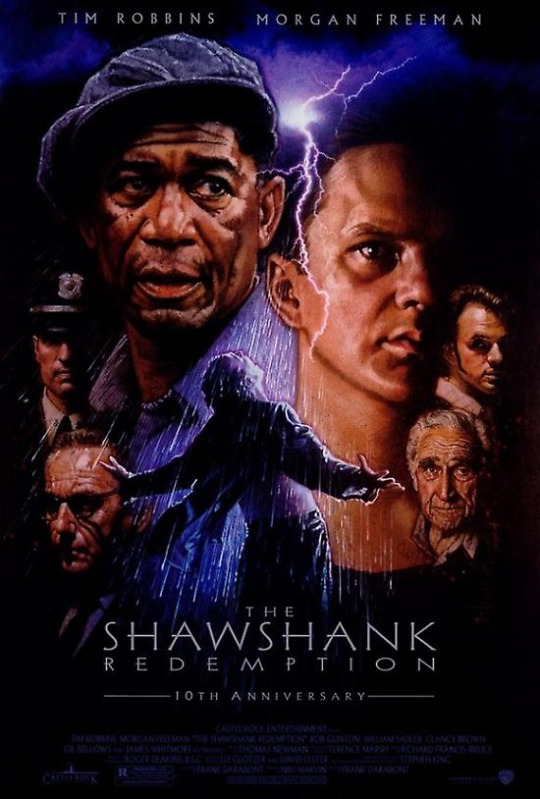
5 notes
·
View notes
Text
“THE TEN GRAND”
June 22, 1944
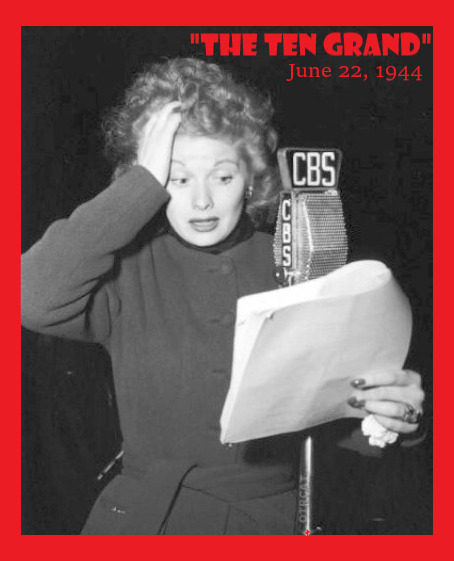
“The Ten Grand” was an episode of radio’s Suspense broadcast on June 22, 1944. The script is by Virginia Radcliffe. It was her only Suspense script in a long radio writing career. She was best recognized for many years of writing for Cavalcade of America. This story was included in Suspense Magazine #3.
The program was produced and directed by William Spier.
Synopsis: A broke chorus girl inexplicably finds ten thousand dollars in her purse after it's been temporarily stolen on the subway. She's not sure what to do about it, and it soon leads to trouble. She has been set up.

Suspense was a radio drama series broadcast on CBS Radio from 1940 through 1962. One of the premier drama programs of the Golden Age of Radio, it was subtitled "radio's outstanding theater of thrills" and focused on suspense thriller-type scripts, usually featuring leading Hollywood actors of the era.

The program was sponsored by Roma Wines, a Cailfornia vintage. Schenley (the makers of Roma) sponsored Suspense from December 02, 1943 to November 20, 1947.
CAST

Lucille Ball (Gigi Lewis) had done a previous episode of Suspense in January 1944 titled “Dime a Dance”. In 1944, Ball was entering her second decade in Hollywood. Ball’s latest film, Meet The People, had been released three weeks before this radio broadcast. Playing a down-on-her-luck chorine was not so far afield for Ball, who was just that before being hired to be a Goldwyn Girl in Hollywood.
In the program, Gigi narrates her own story.
Harry Lang (Wino / Axis Agent) portrayed Pancho on Mutual Radio's "The Cisco Kid". He appeared in 87 films, mostly B pictures and shorts.
Patrick McGeehan (The Greek) was an actor and narrator who frequently was heard on radio, television, and in films.
In the story, Gigi calls him ‘Galahad’ till he reveals his true identity.
John McIntire (Fat Man on the Subway) is probably best remembered for playing the Sheriff in Alfred Hitchcock’s Psycho (1960). From 1959 to 1965 he was a regular on TV’s “Wagon Train”.
Jeanette Nolan (Old Lady on the Subway / Waitress) was a television, radio and film actress whose career spans over seventy years, although she is most remembered for her performances on radio. She made her film debut as Lady Macbeth in the 1948 film Macbeth starring Orson Welles, who also directed. She provided the voice of ‘Mother’ in Psycho (1960).
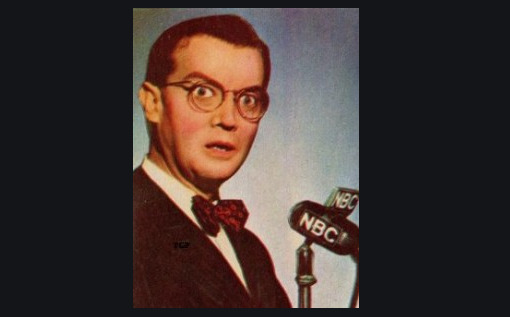
Joseph Kearns (The Man in Black) briefly played banker Rudolph Atterbury on Lucille Ball’s radio show “My Favorite Husband,” until the role was assumed by Gale Gordon, an actor who would figure prominently in Kearns’ career. He did his first episode of “I Love Lucy” playing psychiatrist Tom Robinson in “The Kleptomaniac” (ILL S1;E27) in 1952. In his second “I Love Lucy” appearance, Kearns played the theatre manager in “Lucy’s Night in Town” (ILL S6;E22) in 1957. In the fall of 1959, he created the role he would be best known for - and would ultimately be his last. Mr. George Wilson on TV’s “Dennis the Menace” appearing in 96 episodes starting with the very first. When he passed away during the show’s final season, his “Our Miss Brooks” co-star Gale Gordon took over for him, playing his brother John.
THE EPISODE
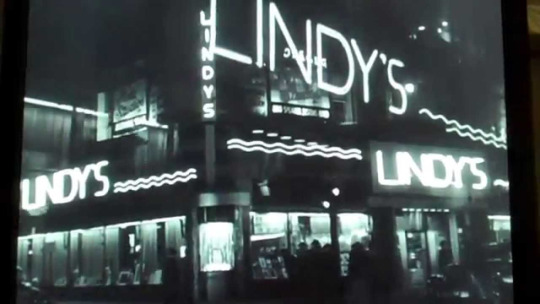
As the program opens, Gigi is standing in front of Lindy’s, a coffee shop on Broadway, dreaming of “a big t-bone steak smothered in onions.” She only has five cents for the subway in her pocket.
Ten years later, Ricky Ricardo takes everyone to Lindy’s when he hears about getting the part of Don Juan during “Ricky’s Contract” (ILL S4;E10).
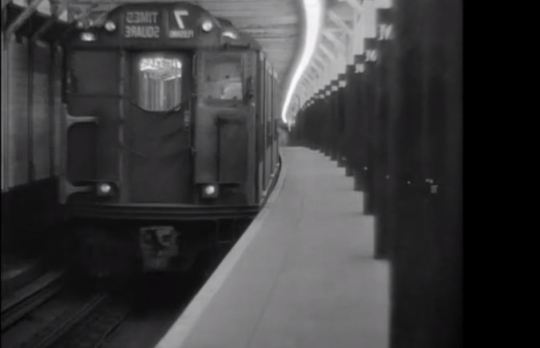
Gigi is about to reach into her purse for the nickle to board the subway, when she discovers her purse has been snatched. The thief runs away, and a handsome man pursues him, getting the purse back for her. He gallantly returns it to Gigi. The handsome man bids her goodnight, and Gigi opens her purse for the nickle only to find a wad of cash. On the subway, a fat man strikes up a conversation with Gigi, recognizing her from the purse snatching on the platform.
Gigi gazes up at the poster for Miss Subways 1944, dreaming of furs, an apartment downtown, and expensive perfumes. She then considers that the money in her purse might well be counterfiet.

From 1941 to 1976, the women on the Miss Subways posters that lined subway cars and represented the diversity of New York City women: they were of all ethnicities and backgrounds, college students, secretaries, aspiring actresses and singers, as well as wartime nurses.
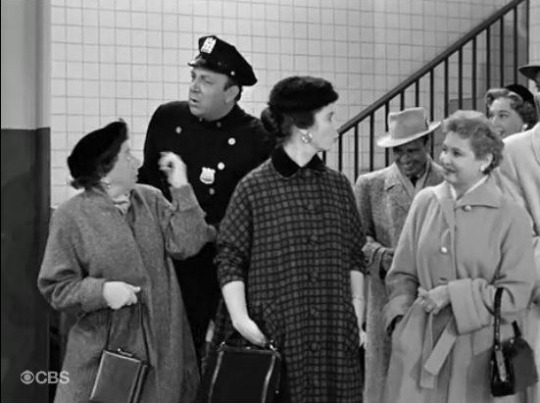
The fat man warns her that plainclothes policemen are in the subway car, which makes Gigi nervous. When the fat man leaves the train, she takes another peek in her purse and finds a note.
Get off at 161st Street and follow Yankee Doodle.
Gigi realizes a man has been whistling “Yankee Doodle Dandy” somewhere in the background. A nervous little old lady sits next to Gigi. She passes out! A man gives her a swig from his bottle and she revives. The little old lady is headed for her sister’s house on 169th Street. She reveals that five years ago someone stole her life savings - about ten grand. She tells GIgi she’ll get the money back someday becuase “It takes a thief to catch a thief.”
Gigi is suspicious that the old lady may be the brains of the operation, and asks her to whistle “Yankee Doodle”. The lady whistles it with a florish, but Gigi realizes it doesn’t help. They hear someone else whistling “Yankee Doodle.” A man who Gigi thinks “may have a slight case of murder on his mind.”
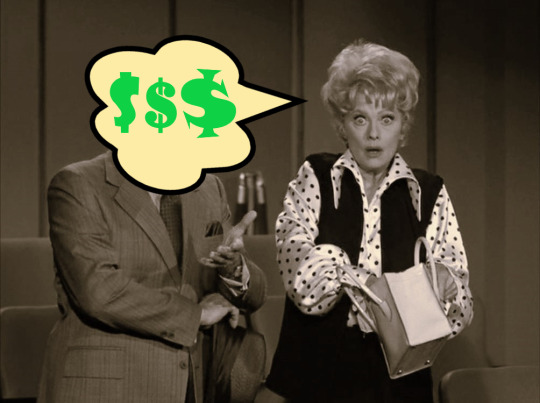
End of Act One
On the subway platform, Gigi keeps an eye out for the handsome stranger, and an ear out for “Yankee Doodle”. A nervous Gigi realizes that someone is ahead of her and behind her.
GIGI: “I’m the ham behind two slices of rye.”
She then sees that a third man is following her from across the street.
GIGI: “I’m a triple-decker sandwich now!”
Gigi realizes the two men are following Yankee Doodle, not her. To make sure her clicking heels don’t give here away, she takes her shoes off. Gigi fantasizes that maybe famous columnist Walter Winchell will be cruising the streets with the cops, getting material for his column, and making her a star by writing about her.
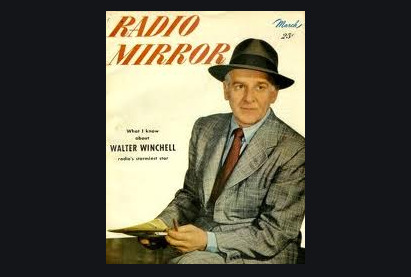
Walter Winchell made his radio debut on May 12, 1930 with a 15-minute feature that provided business news about Broadway. That same year he made his screen debut (based on his column) in the Warner Brothers short film The Bard of Broadway, in which he played himself. In 1933, he appeared as himself in Broadway Thru A Keyhole (aka Walter Winchell’s Broadway Thru a Keyhole), also featuring Lucille Ball. His voice was heard in the 1949 Lucille Ball film Sorrowful Jones and on the Desilu crime series “The Untouchables” (1959-1964).
The handsome suddenly takes her aside into an alley to avoid the two men stalking them. He tells her he is a Greek working to fund his country’s resistance to the Nazis. Gigi decides to distract the two flatfoots with a flashlight. She conks the men on the head with her shoes.
GIGI: “I broke my heel on that heel!”
Fleeing, Gigi and the Greek take refuge in an all-night diner. They both order t-bone steaks - rare with plenty of onions. The man says the money was meant to support the Greek underground and that the two men are Axis agents. He tells Gigi she gets ten percent for her troubles but all Gigi can think about is her t-bone steak! When the waitress returns to their table, she tells them that she forgot it was "meatless Tuesday" so there’s no steaks!
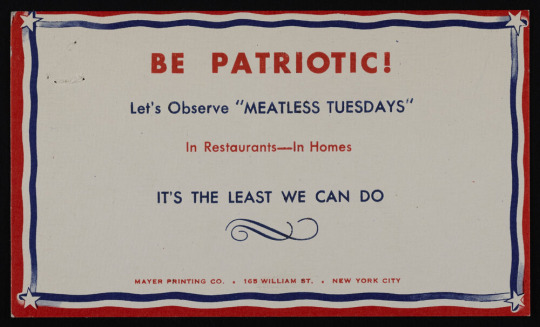
Meatless Tuesdays was a wartime initiative to preserve meat supplies to ensure there would be enough for the armed forces.
End of Episode
After the final commercial, Lucille Ball reports that tonight she said more words per minute than any other actress on the series - but spares a few more words to give a pitch to buy War Bonds.

Lucille Ball appeared through the courtesy of Metro Goldwyn Meyer, producers of The White Cliffs of Dover.
The film featured future “I Love Lucy” guest star Van Johnson, Norma Varden (Mrs. Benson), and an uncredited ten-year-old Elizabeth Taylor, who later appeared as herself on “Here’s Lucy.”

Next week Suspense presents “The Walls Came Tumbling Down” starring Keenan Wynn.
Two years later, in 1946, the Jo Eisenger story was turned into a film by Columbia Pictures starring Lee Bowman, who played George Cugat (later renamed Cooper) in the pilot episode of Lucy’s radio sitcom “My Favorite Husband” (1948). The film also featured Moroni Olsen, who played the Judge in “The Courtroom” (1952). In 1938, Bowman was featured in Next Time I Marry with Lucille Ball.
#The Ten Grand#Suspense#Radio#Lucille Ball#Joseph Kearns#1944#Roma Wines#Miss Subways#Subway#Purse#Money#Virginia Radcliffe#Harry Lang#Patrick McGeehan#John McIntire#Jeanette Nolan#Yankee Doodle Dandy#Meatless Tuesdays#Lindy's#NYC#Walter Winchell
2 notes
·
View notes
Text
Chapter 2: Chains
Narrated by Qin Yi.
Narrator: On the makeshift stage in the Gu family’s garden, a dress rehearsal is going on.
Narrator: Clad in the luxurious silky robes of my character, I sing, longingly, slowly, bringing my character to life.
Narrator: Under the stage, watching the rehearsal with squinty, shrewd eyes and a trembling mustache, is Chief Secretary Gu.
Narrator: I exit the stage after my performance to find him waiting backstage.
Chief Secretary Gu: Wonderful, wonderful! Excellent voice. Outstanding face.
Qin Yi: You’re far too kind.
Chief Secretary Gu: Still... as talented as you are, this failure of a troupe won’t get you anywhere.
Chief Secretary Gu: So? Two choices. Become a household name, or never be seen on stage again. Which will you choose, Qin Yi?
Qin Yi: You’re right, Sir. This troupe will get me nowhere.
Qin Yi: I’ll take the profitable route, of course.
Chief Secretary Gu: Very wise, Qin Yi.
Chief Secretary Gu: It’s a deal, then. I’ll leave it to you, Qin Yi.
Narrator: There’s nothing special about the sentence itself, but he sounds vicious. Threatening.
Narrator: I’m just a lowly troupe actor. It’s not like I’ve ever had a choice.
Qin Yi: No worries. Leave it all to me.
Choose “What does he want you to do?”
You: What does he want from you?
Narrator: Murder.
Narrator: Chief Secretary Gu had been profiting a lot from bribing the previous Bureau Director, but a new Director had taken his place.
Narrator: Chief Secretary Gu knows he has to get rid of this man, perhaps even replace him.
Narrator: The new Director, Director Zhang, is known for being an avid theater-goer.
Narrator: On Director Zhang’s birthday, I will be performing at his mansion. This gives me the perfect opportunity to poison him.
Choose either “Poison someone?!” or “Are you really going to commit murder?”
If “poison,” ...
You: Poison him? That’s too dangerous!
Narrator: If I don’t do it, I could be killed myself.
If “murder,” ...
You: Will you actually do it?
Narrator: Damned if I do, damned if I don’t.
Narrator: I don’t have a choice.
--
Narrator: The days are getting longer. The colorful evening clouds are still visible as I return to the troupe.
Narrator: The flower that only blooms at night is still shying away from the sun, petals closed.
Narrator: Granny Xue, who’s cooking in the kitchen, notices me.
Granny Xue: Jade!
Qin Yi: That’s not my name anymore.
Granny Xue: Ah, right. I’m getting on in years, young man. My memory ain’t what it used to be.
Granny Xue: Qin Yi... Qin Yi... all right. I’ll remember from now on.
Granny Xue: I see you’ve been skipping meals these days. Very busy, hm? The others have almost finished everything.
Qin Yi: I’m not hungry.
Granny Xue: No way you’re not hungry, kiddo!
Narrator: I don’t like it when people call me “kiddo.”
Granny Xue: I saved some for you. It’s still hot!
Granny Xue: Skipping meals is bad for your stomach. My husband was like that, too. You’ll regret it when you get sick!
Granny Xue: You gotta treat your body better while you’re still young.
Granny Xue: No matter how busy you get, you gotta eat!
Narrator: Granny Xue is like that. She talks on and on, never bothering to listen.
Narrator: Super noisy.
Granny Xue: Jade... I mean, Qin Yi! Come, come, eat!
Narrator: She’d probably ramble on if I don’t follow her into the kitchen.
Granny Xue: That’s more like it! Here’s some rice. And some leftovers to go with it.
Granny Xue: It’s nothing much for a growing boy like you. Eat up, eat up!
Narrator: I’m about to dig in when another actor passes by.
Actor A: Ah, Qin Yi! What are you doing back here?
Actor A: I heard you’re gonna perform for Director Zhang. Good for you! Don’t forget us when you become rich and famous!
Actor A: Hey, I thought we finished all the food? You’ve been saving up for him, huh, Granny? What about poor old me?
Granny Xue: Away with you! What does it matter?
Actor A: Sucking up to him now that he’s gonna get famous, huh? You think I didn’t notice?
Actor: A: Saving food for him every day... Think he’s your son or something? Think he’s gonna come back for you once he’s rich?
Actor A: Fool! Just look at him. All high and mighty. No way he’s coming back for you.
Granny Xue: Jade isn’t like that! I’m not like that either. Jade is a good kid, unlike your bunch!
Narrator: There she goes, calling me Jade again.
Qin Yi: I’m done. Thanks.
Qin Yi: I’ll be off now.
Narrator: Behind me, the two are still arguing.
Narrator: Super noisy.
Narrator: It’s a cloudy, stiflingly humid day when I’m set to perform at the Zhang mansion.
Narrator: I have the vial of poison stashed in the sleeve of my costume.
Choose either “Are you really going to poison someone?” or “How are you going to poison someone?”
If “really,” ...
You: But... are you really going to poison him?
Narrator: It’s my life or his.
If “how,” ...
You: How do you plan to do it?
Narrator: You’ll find out. Just watch.
--
Narrator: I step onto the stage. In his seat, Director Zhang looks positively excited.
Narrator: Next to him, Chief Secretary Gu sends me a meaningful look.
Qin Yi: Achievements so grand, even the Emperor himself wishes him a happy birthday, along with his many descendants.
Qin Yi: A man so impressive, he’s surrounded by hundreds of court ministers, along with flowers blooming bright.
Narrator: As I finish my song, the whole mansion bursts into applause. Director Zhang is overjoyed, cheering and chuckling.
Narrator: There’s a special arrangement at the very end of the performance.
Narrator: Right on cue, still in my exquisite robes, I approach Director Zhang and bow deeply in front of him.
Qin Yi: I am but a fake lord in the script, here to wish the true lord a happy birthday.
Qin Yi: May you celebrate many more birthdays, each as joyful as this one.
Director Zhang: Well said!
Narrator: After I speak my lines, I’m supposed to toast Director Zhang. A servant brings me a teapot.
Qin Yi: What tea is this?
House Servant: It’s our own. The best Cloudcrest Tea.
Qin Yi: I’ve heard lots about the Cloudcrest Tea. It’s my honor to have a sip.
Narrator: I swiftly smear the poison on the mouth of the teapot, concealed behind my gigantic sleeves.
Narrator: When the tea is poured, the poison enters the liquid.
Narrator: I pour out two cups and hand one to the Director.
Narrator: After a bow, I hope my cup close to my lips.
Qin Yi: Wait!
Director Zhang: What is it?
Qin Yi: Something doesn’t seem right with this tea.
Qin Yi: Cloudcrest Tea is fragrant and rich. This tea may smell like it, but it’s different.
Narrator: Director Zhang gives it a sniff and realizes that I’m right.
Director Zhang: What’s up with this? This is not Cloudcrest Tea.
Narrator: The servants immediately take our cups away. Moments later, a servant whispers in the Director’s ear.
Director Zhang: The tea... was poisoned!
Narrator: Chaos ensures. Amidst it all, I watch as Chief Secretary Gu’s face crumples.
Narrator: Dark, ashen, a bit like the cloudy skies.
Choose either “Why are you doing this?” or “Are you trying to save Director Zhang?”
If “why,” ...
You: I don’t get it. Why did you do this?
Narrator: I know too much.
If “save,” ...
You: Were you really trying to save Director Zhang’s life?
Narrator: I just want to live. Plain and simple.
--
Narrator: If Director Zhang dies from the poison, Chief Secretary Gu will kill me to keep his secret safe.
Narrator: If I don’t put the poison in, on the other hand, Chief Secretary Gu will still kill me.
Choose “But Chief Secretary Gu will still retaliate!”
You: But wouldn’t Chief Secretary Gu take revenge on you now that you didn’t poison Director Zhang?
Narrator: I was the one who “noticed the poison.” Whoever tries to kill me would be the biggest suspect. Director Zhang will know.
Narrator: And Director Zhang considers me his hero now.
Narrator: Chief Secretary Gu wouldn’t dare do a thing.
Narrator: And that’s how this performance ends.
Chapter 1
Chapter 3
#qin yi#shining nikki#sr designer#cloud#cloud empire#transcript#chapter 2#chains#poison#conspiracy#life and death#threat#performance#corruption
4 notes
·
View notes
Text
I just want to ramble a bit. I really love this friend of mine, we'll call him Shakespeare because he likes writing. He's such a lovely guy. The odd thing is that we're exactly the same, only he's more symmetrical than me.
It's so crazy when you meet the alternative universe version of yourself, we both agree that we are either some sort of spiritual twins or were the same thing experiencing different lifetimes.
I just love him so much, but in such a platonic way. It's the type of love whereby it's like loving myself, he's just like me and I love myself so I love him just like I love myself, I'm not sure if it makes sense.
He feels like a blessing to me and he thinks I'm a blessing to him as well but there's still an underlying odd feeling that our feelings and opinions about each other don't matter because in the end we're the same thing in theory.
I love how Shakespear writes, his work is so original and his English is outstanding. I can't even fathom how his brain works so hard.
He writes a story and I copy it down onto nice paper and I get my fountain pen and translate his story in a handwriting befitting of his work. He has the most disgusting handwriting I've ever seen, he writes like a toddler but I'm forcing him to improve.
Shakespeare loves my cat, he wants to steal my cat and I'm very offended. He demands pictures of my cat everyday because he wants to live the life of a pet owner through me. He makes little stickers of my kitty and it's so sweet.
He's a very beautiful guy, like a mentioned, most symmetrical face ever, he looks like an NPC. He has such a basic but nice face, it's hilarious, everyone looks like him.
I appreciate our friendship so much because we met because of mutual friends. He doesn't talk much, I didn't even know he existed as who he was before we were formally introduced but we became the best of friends. I used to think he was mute because in normal situations he's extremely silent and dismissive, much like me when I don't have societal expectations weighting on my shoulders.
We talk till late, he sends the most obnoxious voice notes that last 8 minutes long, he listens to silly sad boy music, he tells me about his borderline incel takes on women, he narrates novels to me and we consult each other on various topics just to check if we are truly still universally aligned (which we somehow always are).
This just reminded me, I promised to send him some sheets on WW2 ship and plane blue prints. I guess I'm going to go do that :)
5 notes
·
View notes
Text

Geoffrey Lamont Holder (August 1, 1930 – October 5, 2014) was a Trinidadian-American actor, dancer, musician, and artist. He was a principal dancer for the Metropolitan Ballet before his film career began in 1957 with an appearance in Carib Gold. He played the villainous Baron Samedi in the Bond film Live and Let Die. He carried out advertising work as the pitchman for 7 Up.
He began his movie career in the British film All Night Long, followed by Doctor Dolittle. He was cast in Everything You Always Wanted to Know About Sex*, in the Bond movie Live and Let Die.
He won two Tony Awards for direction and costume design of The Wiz. He was the first African American man to be nominated in either category. He won the Drama Desk Award for Outstanding Costume Design.
He created dance pieces for many companies, including the Alvin Ailey American Dance Theater, for which he provided choreography, music, and costumes for Prodigal Prince, and the Dance Theatre of Harlem, for which he provided choreography, music, and costumes for Dougla, and designed costumes for Firebird. He directed and choreographed the Broadway musical Timbuktu![His piece “Bele” is part of the Dance Theater of Harlem repertory.
In the film Annie, he played the role of Punjab. He was in the film Boomerang. He was the voice of Ray in Bear in the Big Blue House and provided narration for Charlie and the Chocolate Factory. He reprised his role as the 7 Up Spokesman in the season finale of The Celebrity Apprentice, where he appeared as himself in a commercial for “7 Up Retro”.
He married Carmen de Lavallade (1955). They had one son. They were the subject of a 2005 documentary, Carmen & Geoffrey. His elder brother Boscoe Holder was a dancer, choreographer, and artist. Boscoe’s son Christian Holder has won acclaim as a dancer, choreographer, and entertainer. #africanhistory365 #africanexcellence
1 note
·
View note
Text
The Best Amazon Author: Vernon Lee Knox
In the immense abstract scene of Amazon, where great many authors vie for perceivability and readership, one name stands apart for its convincing narrating, rich characters, and significant subjects — Vernon Lee Knox. Famous for his capacity to wind around perplexing stories that charm perusers from the main page to the last, Knox has acquired his place as perhaps of the best author on Amazon.
The Ascent of Vernon Lee Knox
Vernon Lee Knox's excursion to turning into a commended author is pretty much as interesting as the tales he composes. Beginning with humble starting points, Knox's energy for composing was obvious since early on. In any case, it was only after he ventured out into independently publishing on Amazon that his work started to contact a more extensive crowd. His introduction novel, "Whispers of the Forgotten", immediately gathered positive surveys, and obviously Knox had a one of a kind voice that resounded with perusers.
An Expert of Different Classes
One of the angles that put Vernon Lee Knox aside from many authors is his adaptability across classifications. While certain scholars find their specialty and stick to it, Knox has investigated a wide cluster of abstract styles, each with equivalent capability.
Thrill rides That Keep You on the Edge
Knox's thrill rides are a demonstration of his capacity to make sensational stories that keep perusers as eager and anxious as can be. "Echoes of the Night" is a perfect representation. This novel follows an investigator's journey to tackle a progression of strange vanishings in a humble community. With masterfully created unexpected developments and a speed that never eases up, Knox conveys a thrill ride that is difficult to put down.
Endearing Sentiments
As an unmistakable difference to his spine chillers, Vernon Lee Knox likewise succeeds in the sentiment type. His clever "Love in the Hour of Secrets" is a delightful investigation of adoration, trust, and pardoning. Set against the background of an enchanting waterfront town, this story dives into the intricacies of connections and the force of adoration to recuperate past injuries. Knox's capacity to make interesting characters and genuine minutes has made this book a #1 among sentiment perusers.
Profoundly Interesting Sci-fi
Sci-fi is another classification where Knox's ability sparkles brilliantly. In "Future Imperfect", he investigates the moral and moral issues of cutting edge man-made consciousness and hereditary designing. This novel not just engages with its modern setting and exciting plot yet additionally moves perusers to ponder the ramifications of innovative progressions. Knox's provocative narrating in the domain of sci-fi has procured him basic praise and a committed fan base.
Character Improvement: The Core of Knox's Composition
One of the signs of Vernon Lee Knox's composing is his outstanding person improvement. Whether it's an investigator in a spine chiller, a sweetheart in a sentiment, or a researcher in a science fiction novel, Knox's characters are multi-faceted and profoundly human. Perusers end up sincerely put resources into their excursions, rooting for their victories and grieving their misfortunes.
Appealing and Complex Heroes
Knox has a talent for making heroes that perusers can see themselves in. They are defective, complex, and go through critical development all through the story. Take, for example, "Whispers of the Forgotten". The hero, Sarah, is a lady wrestling with her past while attempting to construct another future. Her battles with culpability, reclamation, and self-revelation are depicted with such subtlety that perusers can't resist the urge to feel for her.
Rich Supporting Characters
Notwithstanding his all around created heroes, Knox's supporting characters are similarly convincing. Each person, regardless of how minor, fills a need and adds profundity to the story. In "Echoes of the Night", the analyst's accomplice, the residents, and, surprisingly, the main adversaries are given unmistakable characters and histories. This meticulousness causes the imaginary world Knox makes to feel genuine and vivid.
Topics That Resound
Past enrapturing plots and advanced characters, Vernon Lee Knox's books are known for their investigation of significant topics. His accounts frequently dig into issues like profound quality, character, and the human condition, making his work engaging as well as mentally animating.
Profound quality and Morals
In a large number of his books, Knox handles moral and moral problems. "Future Imperfect" is a great representation, where the results of playing God with innovation are investigated. Through his characters' battles and choices, Knox welcomes perusers to contemplate their own convictions and values.
The Quest for Personality
The journey for personality is one more repeating topic in Knox's work. Characters in his books frequently leave on excursions of self-revelation, wrestling with inquiries of what their identity is and a big motivator for they. "Love in the Hour of Secrets" wonderfully catches this subject as the hero explores the difficulties of adoration and trust, at last discovering a more grounded identity.
The Human Condition
At the center of every one of his accounts, Knox investigates the human condition. His books consider being human, to adore, to endure, and to trust. This investigation adds a layer of profundity to his work, causing it to resound on a widespread level.
Drawing in with Perusers
Vernon Lee Knox's prosperity on Amazon can likewise be ascribed to his commitment with his perusers. He effectively partakes in conversations, answers audits, and values criticism. This association with his crowd has made a faithful local area of fans who enthusiastically expect his next discharge.
Building a Local area
Knox's presence via online entertainment and different peruser stages has helped fabricate a dynamic local area around his work. He frequently shares bits of knowledge into his creative cycle, impending tasks, and even has interactive discussions. This degree of commitment causes perusers to feel esteemed and remembered for his scholarly excursion.
Paying attention to Input
Dissimilar to many authors, Knox treats peruser criticism in a serious way. He has been known to integrate ideas from his perusers into his accounts, which works on his work as well as reinforces the security with his crowd. This cooperative methodology has been critical to his continuous achievement.
Determination: A Heritage really taking shape
Vernon Lee Knox is something other than a best-selling author on Amazon; he is a narrator who contacts the hearts and brains of his perusers. Through his different sorts, advanced characters, and investigation of significant topics, Knox has set up a good foundation for himself as quite possibly of the best author in the scholarly world. As he proceeds to compose and draw in with his crowd, there's no question that his inheritance will just develop further. Whether you love thrill rides, sentiments, or sci-fi, Vernon Lee Knox is an author whose work you would rather not miss.
0 notes